Knowledge is the greatest ally for successful entrepreneurs. Yes, Tai Lopez helped mess up that quote in 2016 with his infamous “Here in my garage” video. If you were already an entrepreneur back then, you definitely were followed by that ad everywhere on YouTube.
And as strange and cringy as it sounds, Tai was, in a way, right. Knowledge is, indeed, the common factor among successful companies. Luckily, many successful business owners wrote what led them to success in books.
Check best small business appointment scheduling software →
In today’s article, we will look at 24 of the best small business books available that you leave one step closer to business success. We listed the books in the following way:
Best overall small business book;
Three marketing books;
Two financial books;
Three leadership books;
Three productivity books;
Three negotiation books;
Three entrepreneurship books;
Three strategy books;
Three books for salon owners.
Please grab a cup of coffee, and let’s get started.
Overall best book on running a business
What makes a good book for small businesses?
For one, it should offer practical, actionable advice that can be implemented immediately. Whether you’re just starting out or looking to take your business to the next level, you need guidance grounded in real-world experience that can help you navigate the unique challenges that small businesses face.
Additionally, a good book for small business owners should be easy to read and engaging, with real-life stories and examples that illustrate key concepts and make the advice more relatable. It should also be relevant and up-to-date, with insights and strategies that reflect the current state of the business landscape.
“The Lean Startup” by Eric Ries
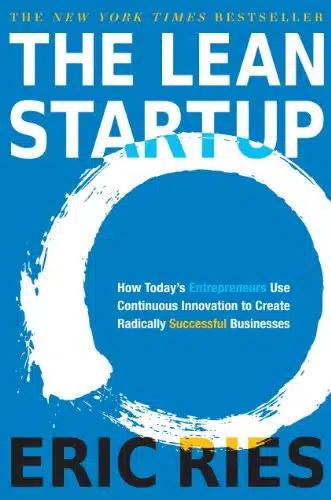
One book that meets all of the criteria above (and more) is “The Lean Startup” by Eric Ries. In this groundbreaking book, Ries lays out a methodology for building and growing startups based on rapid experimentation, customer feedback, and a relentless focus on delivering value.
What sets “The Lean Startup” apart is its emphasis on continuous improvement and learning. Instead of assuming you know what your customers want, Ries advocates for constant experimentation and iteration, using feedback and data to refine your product or service over time. “Don’t be in a rush to get big. Be in a rush to have a great product,” is one quote we can extract from this principle.
Overall, “The Lean Startup” is a must-read for any small business owner who wants to build a successful company that is agile, customer-focused, and built to last.
Best marketing books
Another essential type of business book is a marketing one. Marketing is a crucial aspect of any small business, as it helps attract and retain customers, build brand awareness, and drive sales. Here are three best marketing books for small business owners to consider when learning effective marketing and new marketing skills.
“Contagious: Why Things Catch On” by Jonah Berger
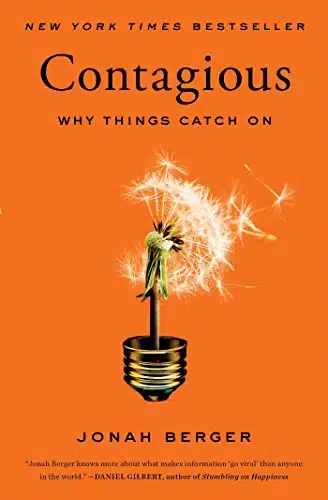
In “Contagious,” Jonah Berger explores the science behind why specific ideas, products, and behaviors become popular. He identifies six key principles that underlie viral content, including social currency, emotion, and practical value. He provides practical tips for creating contagious content to help your business stand out in a crowded marketplace.
As Berger notes, “Word of mouth is 10 times more effective than traditional advertising,” making this book a must-read for any small business owner looking to boost their marketing efforts.
“Building a StoryBrand” by Donald Miller
Donald Miller’s “Building a StoryBrand” offers powerful content for creating compelling marketing messages that resonate with your target audience.
Miller argues that most businesses focus too much on their products or services rather than the needs and desires of their customers and provides a step-by-step guide for crafting a clear and compelling brand story that will help your business connect with customers on a deeper level.
As Miller notes, “The goal of your brand story is to create a relationship with your customers that they want to be a part of.”
Influence: The Psychology of Persuasion by Robert Cialdini
In “Influence,” Robert Cialdini delves into the psychology of why people say “yes” and provides a system for understanding how to persuade and influence people.
He outlines six universal principles of influence, including reciprocity, social proof, and authority. He provides real-world examples and practical tips for applying these principles to your marketing and sales efforts.
“The most powerful person in the world is the one who knows how to get others to do what he wants.” By mastering the principles of influence, small business owners can boost their marketing and sales efforts and achieve greater success.
Best financial books for small business
For small business owners, managing finances is crucial for the success and longevity of their business. Financial business books can provide valuable insights and strategies for achieving financial stability and growth. Here are two of the best financial books for small business owners:
“Profit First” by Mike Michalowicz
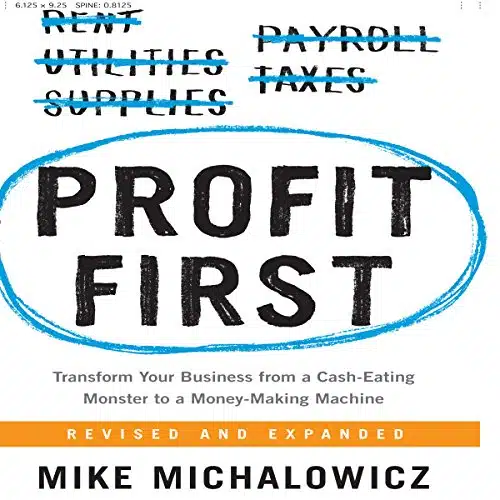
“Profit First” challenges the traditional accounting formula of sales – expenses = profit and suggests a new formula of sales – profit = expenses.
By prioritizing profit, the book offers a system for small business owners to ensure that they pay themselves and that their expenses align with their profits. This approach helps businesses become financially stable and profitable from the start.
Quote from the book: “The formula for determining a profitable business is sales – profit = expenses. The most important word in that formula isn’t sales or expenses; it’s profit. Profit should never come last.”
“The Millionaire Next Door” by Thomas J. Stanley and William D. Danko
“The Millionaire Next Door” is a classic financial book that reveals the habits and characteristics of self-made millionaires.
The book debunks the myth that millionaires are typically high-income earners with flashy lifestyles. Instead, it shows that most are frugal and live well below their means. It provides valuable lessons on financial discipline, savings, and living within one’s means.
“Wealth is not the same as income. If you make a good income each year and spend it all, you are not getting wealthier. You are just living high. Wealth is what you accumulate, not what you spend.”
Best leadership books
Effective leadership is crucial for small business’ success. These next three business books provide valuable insights into how great leaders approach their roles and how to cultivate a positive work culture that inspires and motivates employees.
“Good to Great” by Jim Collins
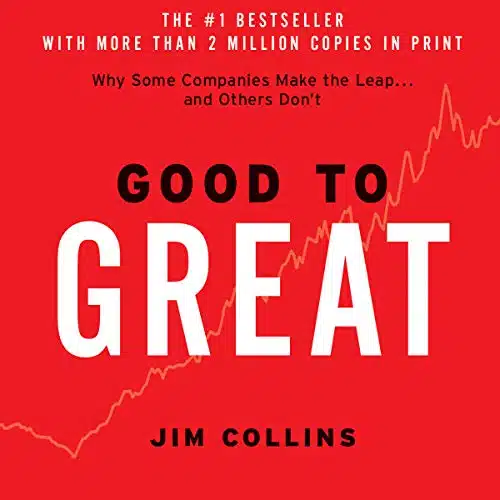
In “Good to Great,” Jim Collins and his team of researchers analyze the traits that make some companies excel while others fail to achieve greatness. The book highlights the importance of strong leadership, disciplined decision-making, and a relentless focus on execution. Collins argues that great leaders inspire from day one but can be developed through personal humility and professional will.
Quote: ” It’s not that great leaders have no ego or self-interest. Indeed, they are incredibly ambitious – but their ambition is first and foremost for the institution, not themselves.”
“Leaders Eat Last” by Simon Sinek
“Leaders Eat Last” by Simon Sinek explores the relationship between leadership and trust. Sinek argues that leaders prioritizing their employees’ well-being create a culture of trust and cooperation, which leads to higher engagement and productivity.
By providing examples from the military and corporate world, Sinek shows that the best leaders are willing to sacrifice their own interests for the team’s good.
As he writes in the book, “Great leaders truly care about those they are privileged to lead and understand that the true cost of the leadership privilege comes at the expense of self-interest.”
“Drive” by Daniel H. Pink
“Drive” by Daniel H. Pink challenges traditional views of motivation and offers a new perspective on what drives people to excel.
Pink argues that autonomy, mastery, and purpose are the key ingredients of motivation. In his words, “Control leads to compliance; autonomy leads to engagement.”
For him, the best leaders create environments where employees can thrive by pursuing their passions, honing their skills, and contributing to something greater than themselves – and, with luck, win friends.
Best productivity books
Productivity is key for small business owners looking to make the most out of their time and resources. These three business books are some of the best productivity tips, each offering unique insights and practical strategies for your own business.
‘The 7 Habits of Highly Effective People” by Stephen R. Covey
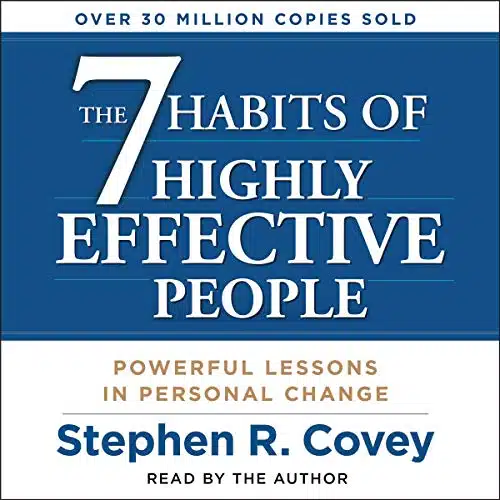
Stephen R. Covey’s “The 7 Habits of Highly Effective People” has been a bestseller for years, and for good reason. Covey’s seven habits are about getting more done in less time and developing a sense of purpose and fulfillment in your work and personal life. As Covey writes, “Most of us spend too much time on what is urgent and not enough time on what is important.”
“Getting Things Done” by David Allen
David Allen’s book is about managing workflow and efficiently completing tasks. The GTD method involves capturing all tasks, breaking them into actionable items, and organizing them in a system that makes prioritizing and completing them easy. Allen’s famous quote from the book is: “Your mind is for having ideas, not holding them.
“Atomic Habits” by James Clear
James Clear’s “Atomic Habits” is about small habits’ power and incremental progress. Clear argues that making tiny changes in your daily routine can lead to significant improvements over time. As he puts it, “Habits are the compound interest of self-improvement.” With practical advice and real-world examples, “Atomic Habits” is a must-read for anyone looking to make lasting changes in their life and work.
Best negotiation books
As a small business owner, negotiation skills are crucial to your success. Whether you’re trying to close a deal with a new client, negotiating the terms of a partnership, or securing funding for your business, negotiating well can make all the difference. That’s why we’ve compiled a list of the best negotiation books that every small business owner should read.
“Never Split the Difference” by Chris Voss
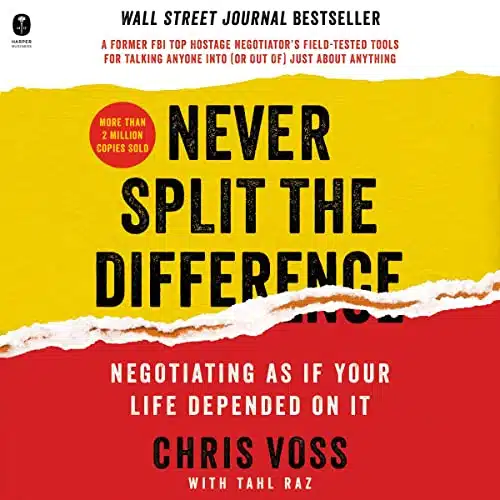
“Never Split the Difference” by Chris Voss is a book written by a former FBI hostage negotiator who shares his experiences and insights on negotiating in high-stakes situations.
The book teaches readers how to use empathy, active listening, and tactical empathy to negotiate effectively. As he puts it, “the most powerful thing you can do when you’re trying to influence someone is to demonstrate that you understand their perspective and take that perspective seriously.”
“Getting to Yes” by Roger Fisher and William Ury
This classic negotiation book has been widely read and recommended for decades. “Getting to Yes” teaches readers how to separate the people from the problem, focus on interests rather than positions, and create options for mutual gain.
“Don’t bargain over positions. Instead, focus on interests.” To influence people,
“Influence: The Psychology of Persuasion” by Robert Cialdini
Robert Cialdini’s “Influence” is a book that explores the science of persuasion and influence. The book teaches readers about the six universal principles of influence (reciprocity, consistency, social proof, liking, authority, and scarcity) and how to apply them in negotiations.
One of the most insightful quotes from the book is: “People will do things for you if you do things for them. They will like you more if they feel that you like them.”
Best entrepreneurship books
Entrepreneurship is creating, developing, and managing a business venture to make a profit. Small business owners often have taken the leap to start their own businesses. Reading entrepreneurs who share their success stories can provide insights and inspiration to help small business owners succeed.
Here are three of the best entrepreneurship books:
“Zero to One” by Peter Thiel and Blake Masters
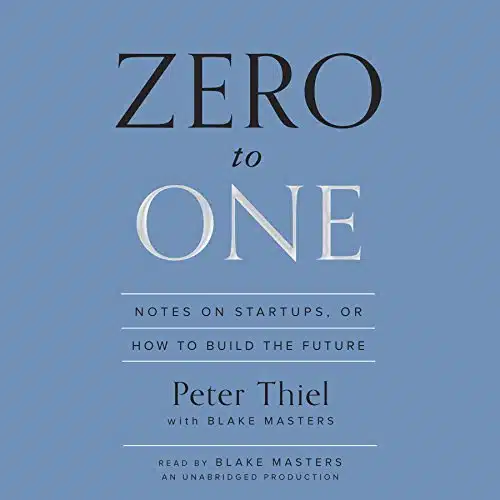
“Zero to One” is a must-read for any entrepreneur. Peter Thiel, the co-founder of PayPal and an early investor in Facebook, offers a unique perspective on innovation, competition, and how to build a successful startup. The idea is that going from zero to one is harder than going from one to two, as getting off the ground is always the hardest part of business growth.
He argues that creating something new and valuable is more important than competing in an existing market. Thiel emphasizes the importance of creating a monopoly by developing a product or service that is 10x better than the competition.
“The Hard Thing About Hard Things” by Ben Horowitz
Starting a business takes work, and many entrepreneurs face difficult challenges. “The Hard Thing About Hard Things” is a practical guide for navigating the tough decisions and challenges of building a successful company. Or “As a startup CEO, I slept like a baby. I woke up every 2 hours and cried,” as the author says.
Ben Horowitz, the co-founder of Andreessen Horowitz, shares his experiences and lessons learned from running multiple startups. He offers advice on leadership, growth mindset, business ownership, and fundraising.
“Founders at Work: Stories of Startups’ Early Days” by Jessica Livingston
“Founders at Work” is a collection of interviews with successful people and startup founders, including Steve Wozniak of Apple, Max Levchin of PayPal, and Caterina Fake of Flickr.
The book provides a behind-the-scenes look at the early days of these companies and the challenges they faced. It also offers insights into the mindset and characteristics of successful entrepreneurs.
Best strategy books for a small business owner
As a small business owner, having a solid strategy for your business goals is crucial for long-term success. These three books offer valuable insights and frameworks for developing a thriving business strategy.
“Blue Ocean Strategy” by W. Chan Kim and Renée Mauborgne
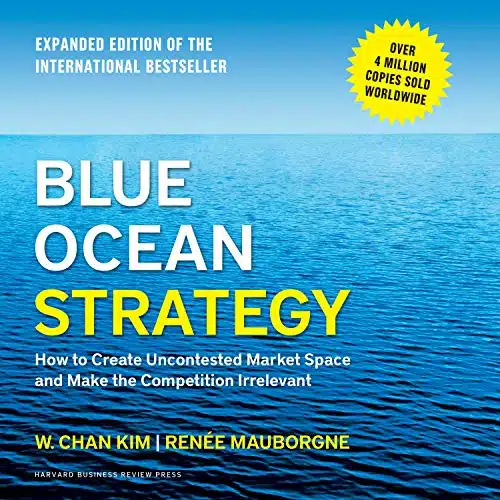
“Blue ocean strategy challenges companies to break out of the red ocean of bloody competition by creating uncontested market space that makes the competition irrelevant.”
In “Blue Ocean Strategy,” Kim and Mauborgne argue that businesses can find success by creating uncontested market spaces, or “blue oceans,” rather than competing in crowded and often oversaturated markets, or “red oceans.” The authors discuss identifying and creating these blue oceans while offering real-world examples of companies successfully implementing a business plan and strategy.
“Competitive Strategy” by Michael E. Porter
“Competitive Strategy” is a classic in the business strategy genre and is still widely referenced today. Porter states, counterintuitively, “The essence of strategy is choosing what not to do.”
They teach readers to analyze the environment of an industry and develop a strategy for gaining a competitive advantage. He also covers industry structure, the five forces determining profitability, and the importance of positioning within the industry.
“The Art of Strategy” by Avinash K. Dixit and Barry J. Nalebuff
Game-theory and successful business strategy is a fantastic mix to study. “The Art of Strategy” provides readers with a framework for making strategic decisions in uncertain environments. Dixit and Nalebuff cover game theory, negotiation, and strategic thinking topics and provide real-world examples of how these concepts can be applied in business settings.
“The best strategy for dealing with an uncertain world, as far as we can tell, is to prepare yourself for anything.”
Best books for a salon business owner
As a business built to help salon businesses grow, we from Appointible know salon owners face unique challenges in managing their business and their creative team. We included a section with good books focused on helping salon owners.
The following books provide insights and strategies for salon owners to overcome these challenges and grow their businesses.
“The Beauty Industry Survival Guide” by Tina Alberino
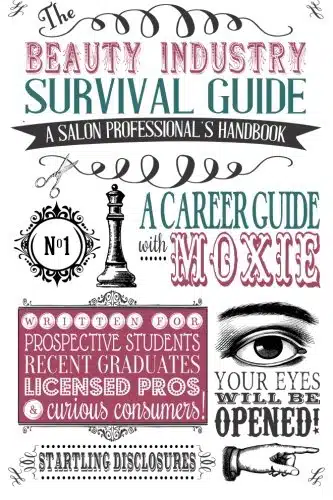
Alberino is a seasoned beauty industry expert, and her book offers practical advice on running a successful salon. From marketing strategies to managing employees, this guide covers all aspects of salon ownership. The book also includes interviews with successful salon owners, providing valuable insights and inspiration.
She says, “Success in the beauty industry is not about being the best at what you do, but about being the best at marketing what you do.”
“Salon Marketing Cash is King” by Tammy de Wet
Marketing is a critical component of any successful salon. This book provides actionable tips and strategies to attract and retain clients. De Wet emphasizes building client relationships and creating a positive customer experience. She also guides leveraging social media and online platforms to promote your salon.
Your clients are your most valuable asset. Nurture them, reward them, and they will become loyal advocates for your business.”
“The E-Myth Revisited” by Michael E. Gerber
This book is a must-read for small business owners, including salon owners. Gerber emphasizes the importance of working “on” your business rather than “in” it and provides actionable steps to systemize and scale it. For salon owners, this means creating standard operating procedures, hiring and training staff, and building a business that can run without you.
The author also states, “The purpose of going into business is to get free of a job so you can create jobs for other people.”
Small business owners face numerous challenges that can affect the success of their businesses. However, various resources, including books, can help small business owners navigate these challenges and achieve success.
Whether you’re seeking marketing tips, financial advice, leadership insights, or negotiation tactics, the books on this list can help you take your small business to the next level. So pick up a book, gain some knowledge, and apply it to your small business to achieve greater success.
